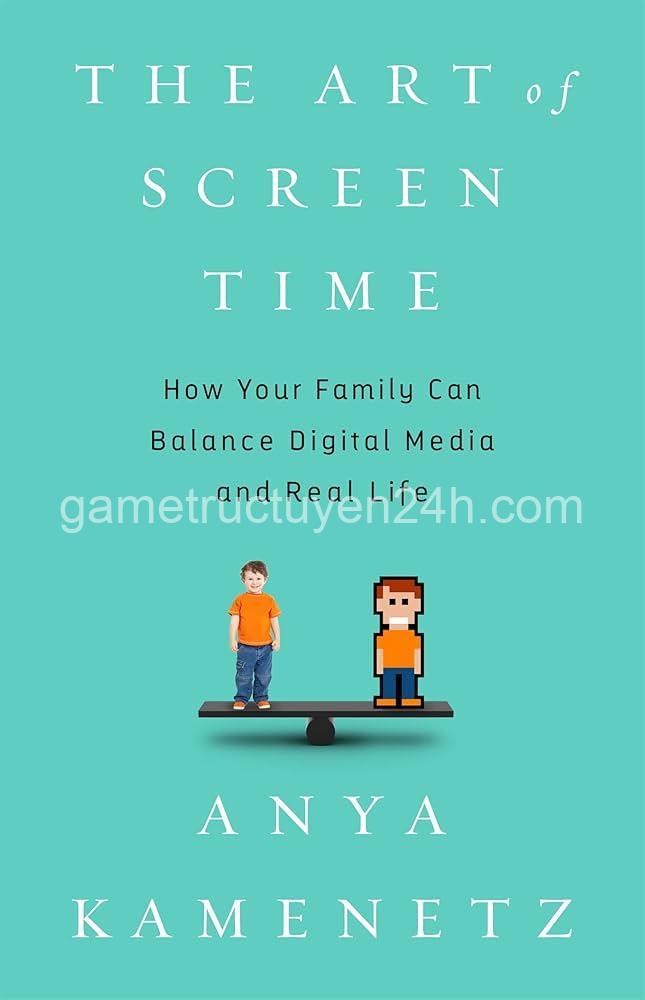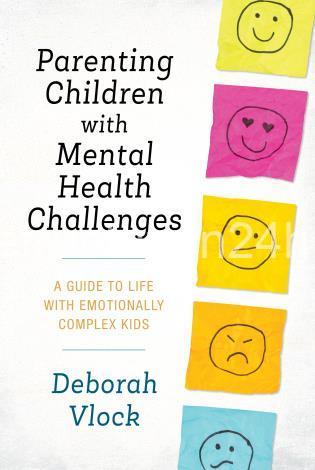Best Early Childhood Education Books: A Guide for Parents. In today’s article, gametructuyen24h.com will explore with you in the most detailed and complete way. See now!
Choosing the Right Early Childhood Education Books: A Guide for Parents
It’s no secret that early childhood education plays a vital role in a child’s development. From fostering language skills to building social-emotional intelligence, the early years lay the foundation for a lifetime of learning. As parents, we’re constantly seeking ways to support our children’s growth, and finding the right resources is essential. The world of early childhood education is vast, filled with books, articles, and programs, but how do we know which ones to trust?
Research-Based Practices
The first and foremost thing to look for in any book about early childhood education is research-based practices. This means that the information presented in the book is supported by scientific studies and evidence-based research. Why is this so important? Because research-based practices have been proven effective in promoting healthy child development. Look for books that cite credible studies and offer practical strategies grounded in scientific evidence.
Developmental Appropriateness
Another critical aspect is developmental appropriateness. Every child develops at their own pace, and it’s essential to choose books that align with their stage of development. A book designed for toddlers will not be appropriate for preschoolers, and vice versa. Consider your child’s age and developmental milestones when selecting a book. For example, a book about language development for toddlers might focus on simple vocabulary and repetitive phrases, while a book for preschoolers might introduce more complex grammar and concepts.
Practical Tips and Strategies
It’s also essential to choose books that offer practical tips and strategies. The best early childhood education books don’t just present theories, they provide actionable steps that parents can implement in their everyday lives. Look for books that offer specific suggestions for activities, games, and routines that can support your child’s learning and development.
Engaging and Accessible Language
Learning should be fun and engaging for both children and parents. Choose books written in a clear, concise, and engaging style. The language should be easy to understand and enjoyable to read. Avoid books that are overly academic or use jargon that might be confusing for parents.
Author Expertise and Credentials
When choosing a book about early childhood education, it’s also important to consider the author’s expertise and credentials. Look for authors who hold degrees in early childhood education, child development, or related fields. They should have a strong understanding of research-based practices and current trends in early childhood education.
Diversity and Inclusion
In today’s world, it’s more important than ever to choose books that represent a diverse range of families and children. Look for books that feature characters from different backgrounds, cultures, and abilities. Inclusive books help children develop empathy, respect, and understanding for others.
Parent-Child Interaction
One of the most important aspects of early childhood education is parent-child interaction. Choose books that encourage shared learning experiences and promote bonding between parents and children. Look for books that offer interactive activities, storytelling prompts, and opportunities for dialogue.
EAVs:
- Book – Author – [Author Name]
- Book – Publication Year – [Year]
- Book – Target Age – [Age Range]
- Book – Topic – [Topic (e.g., Language Development, Play, Social-Emotional Learning)]
- Book – Approach – [Approach (e.g., Research-Based, Play-Based, Developmental)]
- Book – Writing Style – [Descriptive, Engaging, Academic]
- Book – Inclusivity – [Yes/No]
- Book – Practicality – [High/Medium/Low]
- Author – Credentials – [Degree, Experience, Certifications]
- Author – Expertise – [Area of Specialization (e.g., Child Psychology, Early Childhood Education)]
- Parent – Need – [Information, Support, Guidance, Resources]
- Child – Age – [Age in Years]
- Child – Developmental Stage – [Developmental Stage (e.g., Toddler, Preschooler)]
- Child – Learning Style – [Learning Style (e.g., Visual, Auditory, Kinesthetic)]
- Child – Interests – [Areas of Interest (e.g., Art, Music, Science)]
- Research – Findings – [Key Findings]
- Research – Methodology – [Research Design]
- Practice – Effectiveness – [Effectiveness Data]
- Practice – Applicability – [Applicability to Real-World Situations]
EREs:
- Book – Is Written By – Author
- Book – Covers Topic – Topic
- Book – Is Recommended For – Age Group
- Author – Has Expertise In – Field
- Parent – Seeks Information About – Child Development
- Parent – Uses – Resources
- Child – Learns Through – Activities
- Practice – Is Based On – Research
- Research – Supports – Practice
- Topic – Relates To – Developmental Stage
Semantic Triples:
- Book, Author, [Author Name]
- Book, Topic, [Topic Name]
- Book, Target Age, [Age Range]
- Parent, Need, [Information/Support/Guidance]
- Child, Age, [Age in Years]
- Child, Learning Style, [Learning Style]
- Author, Expertise, [Field of Expertise]
- Practice, Research, [Research Findings]
- Practice, Effectiveness, [Effectiveness Data]
- Research, Methodology, [Research Design]
- Practice, Applicability, [Applicability to Real-World Situations]
- Book, Inclusivity, [Yes/No]
- Book, Practicality, [High/Medium/Low]
- Author, Credentials, [Credentials]
- Child, Interests, [Area of Interest]
- Book, Writing Style, [Writing Style]

Avoiding Misleading Information and Outdated Practices
While many books about early childhood education are excellent resources, it’s important to be aware of potential pitfalls. Outdated practices or misleading information can be harmful to a child’s development. For example, some books might promote methods that have been debunked by current research or present information that is not culturally sensitive.
Importance of Staying Updated
The field of early childhood education is constantly evolving as new research emerges and our understanding of child development deepens. It’s essential to choose books that are based on the latest scientific findings and reflect current best practices. Look for books that have been published recently and that cite credible research sources.
Identifying Misleading Information
When evaluating a book, pay attention to the following:
- Author’s Credentials: Does the author have a background in early childhood education or child development? Are they affiliated with a reputable organization?
- Source of Information: Does the book cite reliable sources such as peer-reviewed journals, scientific studies, and reputable organizations?
- Claims and Evidence: Do the claims made in the book align with current research findings? Is there evidence to support the recommendations offered?
- Cultural Sensitivity: Does the book consider the diversity of families and children? Does it promote respectful and inclusive language?
Is it true that all children learn best through play?
While play is crucial for child development, not all children learn best through play. Every child has unique learning styles and preferences. Some children might learn best through hands-on activities, while others might thrive through auditory or visual learning experiences. A well-rounded early childhood education program should incorporate various learning approaches to cater to individual differences.
Are there certain parenting styles that are better than others?
There is no one-size-fits-all parenting style. Different parenting styles can be effective depending on the child’s temperament and the family’s values. The key is to choose a parenting style that promotes positive relationships, emotional well-being, and healthy development.
Should I worry if my child isn’t hitting developmental milestones on time?
Every child develops at their own pace, and there is a wide range of what is considered normal. If you have concerns about your child’s development, it’s always best to consult with a pediatrician or child development specialist. They can assess your child’s progress and provide guidance if necessary.
Are there any common misconceptions about early childhood education?
Yes, there are several common misconceptions about early childhood education. One misconception is that early learning is primarily about academic skills like reading and math. While these skills are important, early childhood education is about fostering all aspects of a child’s development, including social-emotional skills, creativity, physical development, and language development.
Finding the Best Resources for Your Needs
With so many books and resources available, it can be overwhelming to know where to start. Here are a few tips for finding the best resources for your needs:
Online Resources
The internet offers a wealth of information about early childhood education. While this can be a great resource, it’s important to be discerning and choose reputable sources. Look for websites that are affiliated with recognized organizations, such as the National Association for the Education of Young Children (NAEYC) or the American Academy of Pediatrics (AAP).
Libraries and Bookstores
Libraries and bookstores offer a wide range of books on early childhood education. Take advantage of library resources such as online catalogs and librarian recommendations. In bookstores, look for sections dedicated to parenting, child development, and early education.
Professional Recommendations
Another excellent way to find great books is to seek recommendations from early childhood education professionals. Talk to your child’s pediatrician, preschool teacher, or other early childhood specialists. They can provide insights into the best books based on your child’s age and developmental stage.
Resources for Further Learning
If you’re interested in learning more about early childhood education, here are some valuable resources:
Organizations:
- National Association for the Education of Young Children (NAEYC): https://www.naeyc.org/
- American Academy of Pediatrics (AAP): https://www.aap.org/
- Zero to Three: https://www.zerotothree.org/
Books and Articles:
- “The Whole-Brain Child” by Daniel J. Siegel and Tina Payne Bryson
- “Parenting with Love and Logic” by Jim Fay and Foster Cline
- “The Power of Positive Parenting” by Jane Nelsen
Conclusion: Empowering Parents Through Informed Choices
Choosing the right early childhood education books is a powerful tool for supporting your child’s development. By understanding the key criteria discussed in this article, you can make informed decisions that will empower you to be the best parent you can be.
If you have any questions or would like to share your experiences, please leave a comment below. You can also visit gametructuyen24h.com for more information about animal care and pet products.
I hope this guide has been helpful! Happy reading!
Joseph Robert Johnson
Owner of gametructuyen24h.com





